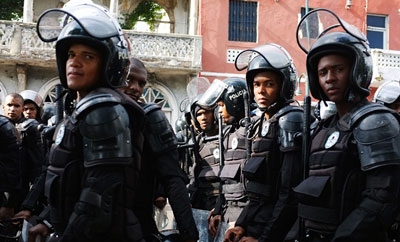Authorities in the Dominican Republic have arrested an ex-soldier on drugs charges, forcibly retired 68 police officers for misconduct, and re-opened a money laundering investigation into a former president, highlighting how corruption pervades public institutions in the Caribbean nation.
Dominican police arrested a former first lieutenant of the army as part of an organized crime bust in which 20 kilos of cocaine, a dozen firearms, and military equipment were seized.
On the same day, police announced the purge of the 68 officers — among them three colonels — from its ranks. While most were removed for personal and professional misconduct, at least one was linked to criminal groups.
Both announcements were made just a day after a corruption and money laundering case against ex-President Leonel Fernandez was re-opened after a former prosecutor and political rival appealed against the May annulment of investigations into his conduct during three presidential terms, the last of which ended in August 2012.
InSight Crime Analysis
The Dominican Republic, an important transhipment point for US-bound drugs trafficked by both air and sea, has been plagued in recent years by accusations of corruption and complicity in drug trafficking among security forces, including high-ranking officers.
Earlier this year, a former presidential candidate faced accusations he took bribes from a drug lord, while last year the United States revoked the visas of three of Leonel Fernandez’s closest advisors for alleged drug ties. The investigation into Fernandez suggests even the top leadership of the Dominican Republic is involved with organized crime.
In recent years, the Dominican Republic has cooperated extensively with the US and other regional partners on drug interdiction programs and has made some significant busts in 2013, although claims in February that air trafficking had been “essentially eliminated,” quickly proved to be unfounded.
Despite this progress, the endemic corruption seen in the military, the police force and politics — stretching up into the highest levels — serves as a barrier to successful anti-drug efforts.

